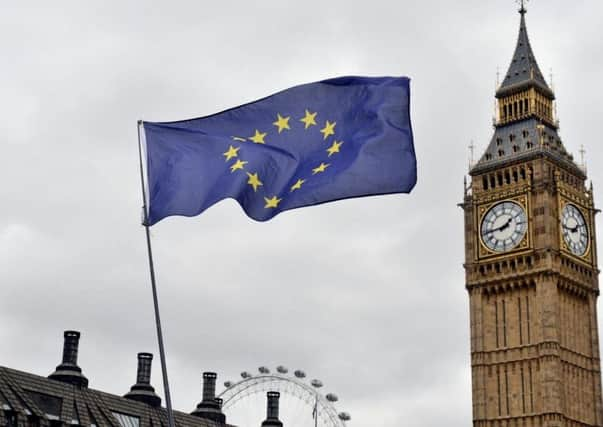Bradley Young: If more politicians were experts, we would not be in a Brexit mess


The reason I go to the doctor when I’m ill is because I want an elite opinion. The opinion of the general public is of no significance; lord knows how many times Dr Google has told me I’m pregnant or already dead.
If I want someone to fix my leaking roof, I hire a professional builder. I have little desire for Terry, a local lawyer, to do the job.
Advertisement
Hide AdAdvertisement
Hide AdWhen a major political decision needs to be made, I rely on an elected politician. The opinion of an elite that has experience, facts and training in public policy is more important than my own view.
Referenda on the other hand embolden certain sections of the electorate, regardless of their expertise. How very democratic, one might argue. But referenda emphasise democracy’s flaws rather than its virtues. Decisions made by the majority can overlook the needs of minorities while the long-term implications of policy can be swayed by false information.
Take Brexit – did every voter have every available piece of information, and study it carefully, before going to the polling station?
No, they did not. As Ken Clarke said this month: “It’s government by opinion poll.”
Advertisement
Hide AdAdvertisement
Hide AdThis is why we have Parliamentary representatives. In principle, MPs are accountable for their actions: the stability of their job depends on long- term success; they have access to the most accurate information and, importantly, the knowhow and means to interpret it.
Their decisions might not always be the best. A doctor or builder can make mistakes or cut corners. But I’d much rather my fate be in their hands than the hands of the unregulated rest of us.
For what means of redress do we have if the majority make a bad decision? None.
Yet, since the current Environment Secretary and prominent Vote Leave campaigner Michael Gove said in the run-up to the referendum that “people in this country have had enough of experts”, there has been growing anti-intellectual sentiment with the views of the “average Joe” favoured instead.
Advertisement
Hide AdAdvertisement
Hide AdThis month the World Health Organisation welcomed the Vatican’s decision to ban cigarette sales because of their links to thousands of deaths each year. Disputing this, Nigel Farage – the former Ukip leader – tweeted that the global quango “is just another club of ‘clever people’ who want to bully and tell us what to do”.
The biggest problem with my argument is that elected positions of government are not always filled with people who are elites in their area of expertise but rather by politicians who are there by virtue of privilege.
The aforementioned Michael Gove, for example, had little day-to-day experience in education, justice or the environment prior to joining the Government and yet he has held all these ministerial briefs.
Politicians differ from doctors and builders in that they are elected and their remit is much less specific. People who are not equipped for the job will more likely make it into Parliament than the GP’s chair.
Advertisement
Hide AdAdvertisement
Hide AdBut saying that government isn’t expert enough is surely an argument for more experts rather than for more direct democracy.
It’s an argument for ensuring mechanisms of accountability, independent oversight, advisory bodies and a separation of powers; not delegating decision-making to the general population.
By definition it is paternalistic to suggest that what people want is not necessarily best for them. But it is naive to think that you or I have any idea what medicine is appropriate for us, or how best to tile a roof.
So as we trundle towards an increasingly awkward Brexit, we must remember the value of experts – and that perhaps they should have determined our relationship with the European Union in the first place before leaving it to the electorate at large.
Advertisement
Hide AdAdvertisement
Hide AdIf staying in the EU was in the national interest, why did David Cameron and George Osborne risk all with a referendum vote that cost them their jobs and reputations?
Bradley Young is a politics student at the University of Leeds. He also edits Contender, a new current affairs magazine aimed at younger people.